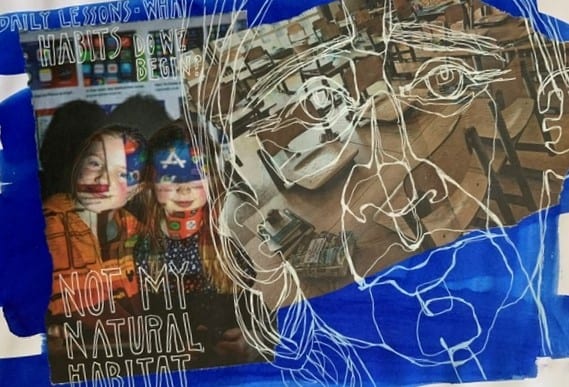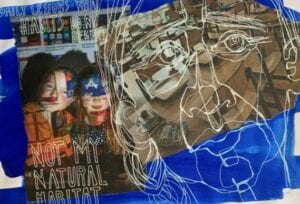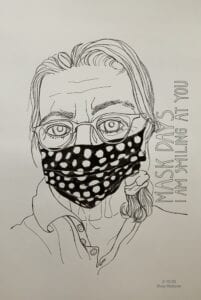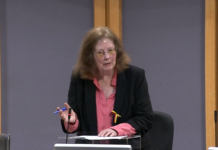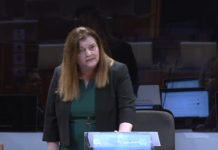An online digital archive containing material documenting hundreds of people’s experiences of Covid-19 will be launched at Swansea University on March 23 – the anniversary of the first UK lockdown.
More than 700 first-hand accounts – ranging from handwritten notebooks, diaries and dream logs to videos, social media posts, Tik Toks, music playlists and even a cross-stitch sampler – chronicle the 12 months of the pandemic.
The CoronaDiaries project is led by Dr Michael Ward, senior lecturer in social science at Swansea University. A team of student volunteers is now assisting him to prepare the documents for public viewing in an online digital archive, which will be supported by a physical collection held at the University’s Richard Burton Archives. 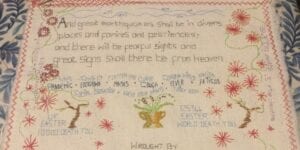
He said: “This was originally devised as a reactive sociological study to an unprecedented event as societies across the globe sought to adapt.
“Over the past 12 months, CoronaDiaries has been recording people’s everyday experiences of the pandemic in the same way that the Mass Observation Studies did before, during and after the Second World War.”
The project has a total of 182 participants, from 14 different counties, aged from 11 to 89.
Their accounts of catching and surviving Covid, losing loved ones and the loneliness and isolation are highly moving with rich descriptions of a changing world.
They also show how quickly people adapted to the crisis with submissions documenting key events such as panic buying, the NHS clap, and the ongoing waves of the virus.
Dr Ward said: “The entries reveal a change in lifestyles brought about by the pandemic, the rupturing’s of family life, the changes to work practices, the boredom and surrealness of lockdowns and confinement and the changes to social and home life.
“Many people are no longer working from home, but living at work.
“The diaries show a continued anger and erosion of trust in politicians and how much loss is prevalent, both personally and in wider society. It certainly appears that those on the lowest incomes and those who could not work from home, have suffered disproportionately.”
Eve, a 19-year- old who works in a care home, wrote: “It felt like the nation, along with the rest of the world, was cast in a dystopian film. The police were akin to George Orwell’s Party members. It became part of their duty to pull cars and question the purpose of the driver.”
However, Dr Ward says the diaries also contain hope and humour, with contributors responding to the pandemic in creative and imaginative ways and with new interests and online interactions leading to a different kind of social life.
The participants said recording their experiences had been cathartic and had helped them to process the changes that had taken place.
Dr Ward added: “We want this collection to stand as a testimony to a changing and troubled time. We also hope that a series of books will follow.”
The CoronaDiaries team at Swansea University includes Eve Moriarty, a digital humanities co-ordinator and a group of student volunteers include Ellie Griffiths, Nahomi Witt-Calvas, Sana Afreen, Angeliki Glarou, Stella-Rae Hicks, Ciaran Barry, Holly Beardshall, Maisie Godden, Georgia Molliex.
The students helping with the project have been drawn from a range of degree backgrounds and have been responsible for anonymising the accounts and analysing the massive amount of first-hand data and preparing them for the digital archive.
Dr Michael Ward can be reached at 07890 874188 or m.r.m.ward@swansea.ac.uk or @mrmwardphd
Help keep news FREE for our readers
Supporting your local community newspaper/online news outlet is crucial now more than ever. If you believe in independent journalism, then consider making a valuable contribution by making a one-time or monthly donation. We operate in rural areas where providing unbiased news can be challenging. Read More About Supporting The West Wales Chronicle





















